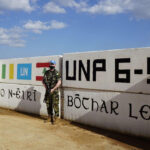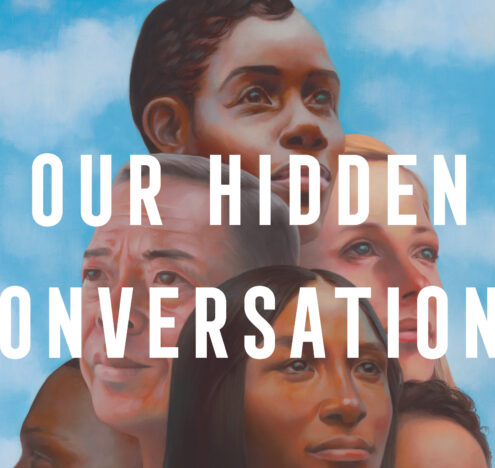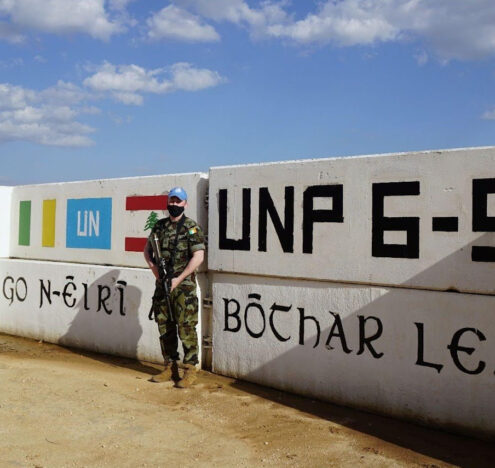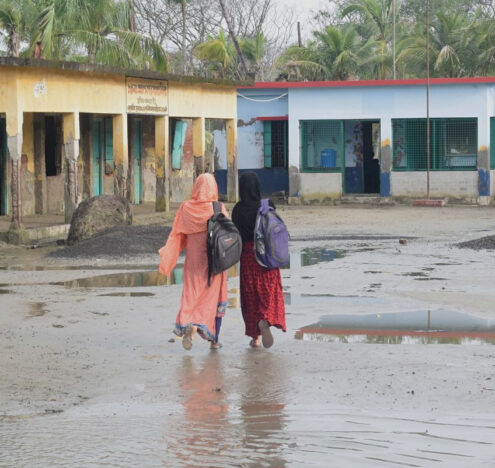This analysis was featured in Critical State, a weekly newsletter from Inkstick Media and The World. Subscribe here.
Last week on Deep Dive, we examined the particulars of a peaceful push for self-determination in Catalonia, and the effects of violent efforts from the Spanish government to shut it down. This week, we’ll zoom out and look at why some pursuits of self-determination grow into violent conflict and others remain mostly non-violent.
A new article on that topic in the journal International Organization by political scientists Micha Germann and Nicholas Sambanis starts from the basic insight that almost all civil wars start with non-violent claims, most of which concern some form of self-determination. Just as obviously, however, not all such claims grow into full-scale wars. Germann and Sambanis are interested in the circumstances that generate those claims and whether different circumstances are more likely to bring about civil war. If a regional or ethnic group sees their political participation undercut in the state to which they ostensibly belong, for instance, are they likely to demand autonomy violently? What if they had autonomy at one point and then lose that autonomy?
The fact that political exclusion and lost autonomy produce distinct escalation patterns for self-determination claims suggests that grievances do matter in producing civil wars.
These questions are important in part because they speak to a basic debate about civil wars. Some political scientists see civil wars as fundamentally the result of grievance: One side has a political bone to pick, and pick it they do. Others see civil wars as fundamentally the result of opportunism: One side sees a chance to wrest power and resources from the central state, and they grasp it. If some forms of grievance are more likely to lead to war than others, then it is evidence that grievance plays a role in civil war onset and is a blow to the opportunism camp.
Germann and Sambanis do in fact find differentiations between forms of grievance in how likely they are to result in a civil war, but their case against the opportunists is more nuanced than you might expect. First, though, the data. The researchers drew on a database of worldwide self-determination claims made between the end of World War II and 2012, and then matched those claims with data on ethnic exclusion from national politics and civil war onset. This gave them a global view of when groups suffered two forms of repression — political exclusion and lost autonomy — and when that repression led to self-determination claims and, in some cases, war.
The two forms of repression produced notably distinct outcomes. When groups lost autonomy, they were quite likely to make non-violent claims to self-determination. When groups were excluded from their countries political process, however, the more common response was to try to get access to that process rather than try to form a separate political entity. Once a self-determination claim was made in an instance of political exclusion, however, that claim was much more likely to result in war than a claim rooted in loss of autonomy. The only times self-determination claims following loss of autonomy predicted eruption of a violent conflict was when the claim followed close on the heels of the actual autonomy loss. The longer a latent independence movement waited to announce itself, the less likely it would be to choose violent means to achieve its goals.
Those results are interesting on their own, but they also illuminate the grievance versus opportunism debate. As noted before, the fact that political exclusion and lost autonomy produce distinct escalation patterns for self-determination claims suggests that grievances do matter in producing civil wars. But, as Germann and Sambanis note, those escalation patterns suggest that opportunism also plays a role, muddying the distinction between the two sides of the debate. For groups suffering political exclusion, for example, once non-violent attempts to re-enter their state’s political system fail, the opportunity cost for violent separatism falls precipitously. If a group sees no path forward to address their political exclusion through non-violent means and instead takes up arms because the state has made itself so illegitimate that rebel recruitment is now possible, is that grievance or opportunism? Who’s to say?




















